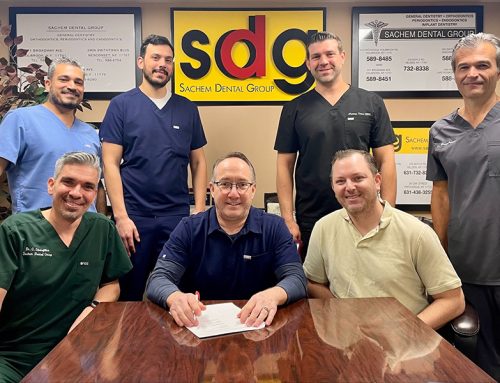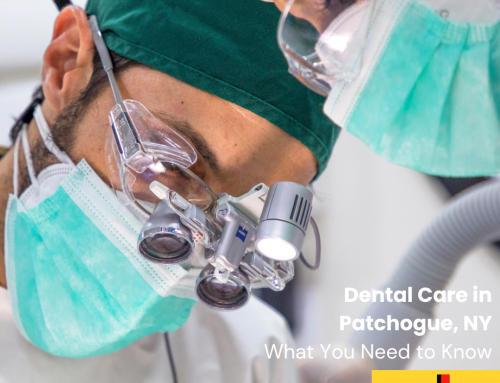5 Signs and Effects of Grinding and Clenching Your Teeth
If you visited a Long Island dentist recently, were you told your teeth are showing evidence that you’re grinding or clenching?
More than likely, you were unaware that you’ve been doing this. Some people that suffer from grinding (also known as Bruxism) don’t know about it, because it happens in their sleep.
How to Tell if You Suffer from Bruxism
It’s important to know the signs of clenching and grinding, because if it isn’t stopped, it can cause other problems. Be on the lookout for…
If you wake up in the morning with jaw pain.
The TMJ muscle is located in front of the lower part of each ear. It allows us to open and close our mouths and is one of the strongest muscles in our body. We use it to speak, chew our food, smile, laugh…and it moves thousands of times throughout the day. If our jaw joint becomes overused by clenching or grinding, you’ll feel soreness throughout your TMJ area and face.
You have earaches pretty regularly.
The jaw, TMJ muscles and joints are very close to your ear. If they’re overworked, you may experience referred pain that feels like an ear ache.
You wake up with a headache.
Normally it will hurt in the area around your temples, but it can also radiate into your neck, shoulders, and back.
Your teeth are sore in the morning when you wake up.
While you clench and grind, your teeth are moving slightly as are the tiny ligaments around them. If it goes on for hours, you’ll notice some discomfort.
Trouble opening your mouth, especially in the morning.
When you clench all night, your jaw muscles get tired and cramp up, making it hard to open your mouth once you wake up. In more serious cases, this problem can last all day.
If you have any of these symptoms and have not been diagnosed with bruxism or a TMJ disorder, you should talk with our multi-specialty dental team in Long Island.
The Risks of Not Treating Chronic Teeth Grinding
Here are some of the long-term side effects of bruxism:
• Your teeth look worn or shorter than they used to.
• Enamel is chipped or broken. Your teeth can be sharp or have pits in them.
• There are notched near your gumline. These micro-fractures are called abfractions and occur because the force of grinding and clenching weakens the enamel where it meets the dentin (the softer part of the tooth near the root).
• Teeth can be worn down to the point where the nerve inside them becomes exposed, allowing bacteria inside. Usually the only way to fix this is by doing a root canal.
• Constant movement of the teeth traumatizes the supporting bone and gum tissue, contributing to periodontal disease. If left untreated, it can result in tooth loss.
These side effects may sound scary, but Sachem Dental Group in Suffolk County is here to help. Ask about a custom oral appliance that can protect your teeth from the long term effects of clenching and grinding. Give us a call today!





